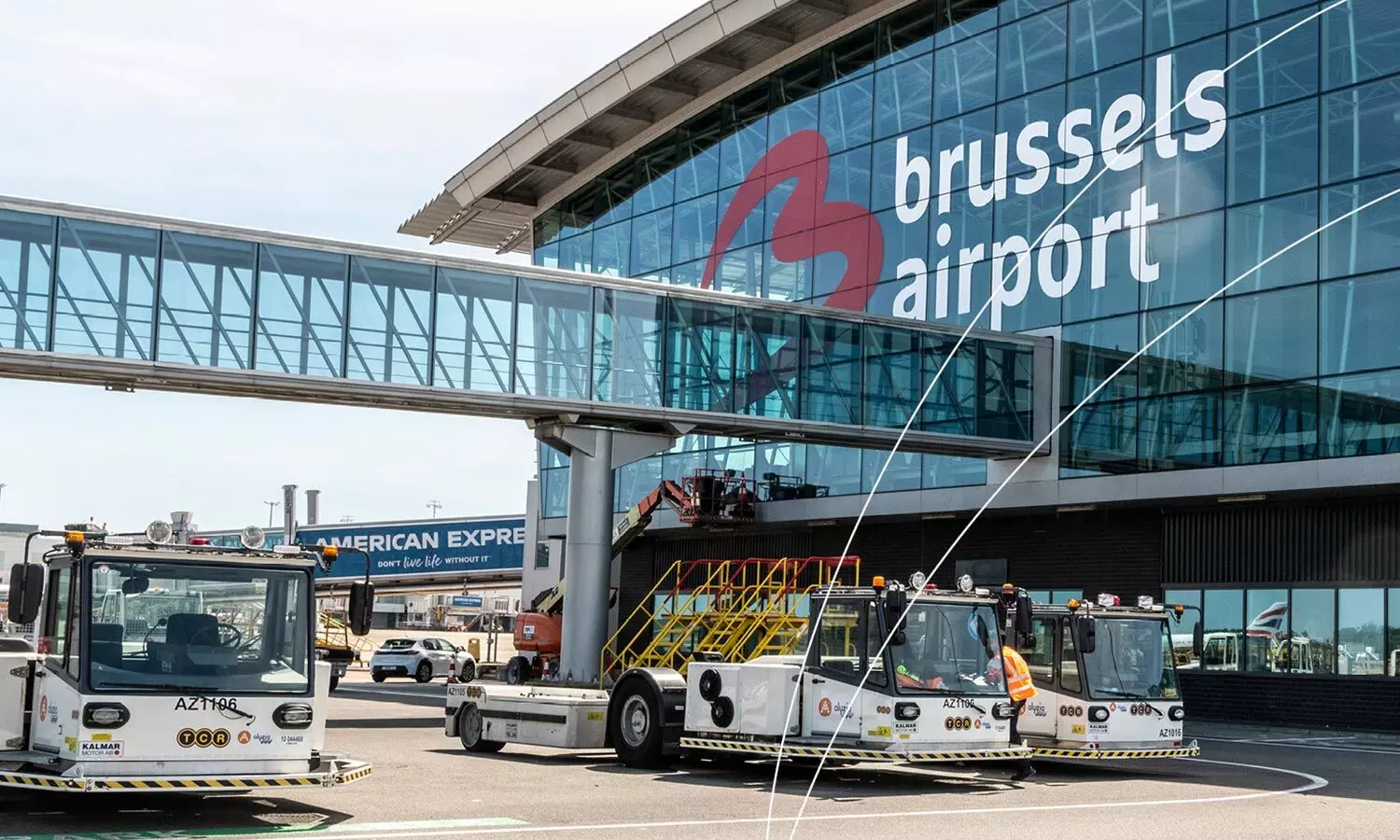
Brussels Airport: Your perishables gateway in Europe

Brussels Airport is stepping up as one of Europe’s leading hubs for perishables by handling more than 154,000 tonnes in 2023, 22 percent of the airport's total cargo volume. With cutting-edge infrastructure and expanded airline connections, the airport is primed to meet the growing demand for fast, reliable transit of sensitive goods across continents.
It has been long since Brussels Airport Company, the operator and manager of Brussels Airport (BRU), established itself as a cargo gateway for Europe and in particular for certain commodities like pharmaceuticals and perishables.
In the calendar year 2023, 22 percent of Brussels Airport's total cargo volume was perishables, which is more than 154,000 tonnes.
“This indicates that our airport has been successfully increasing its capacity and efficiency in handling perishable goods, catering to growing demand in this sector,” says Dimitri Bettoni, Head of Cargo - Product & Network Development at Brussels Airport Company.
This makes Brussels Airport an important logistics hub in the entire global perishable value chain.
“Our digitised import process facilitates seamless communication between forwarders, handling agents, and phytosanitary authorities. If ePhyto solutions are available, we can ensure a fully paperless process.
Dimitri Bettoni, Brussels Airport Company
At Brussels Airport, flowers are the most transported perishable goods, followed by fruits & vegetables, fish and meat. They are primarily imported from Central Africa and South America.
It is very important for an airport cargo hub to be connected to both the outside world and the nearby consumption markets.
Brussels Airport links to the world through 64 airlines offering flights to 185 direct destinations, a significant connectivity for perishables trade.
For instance, from 27 October 2024, the Latin American airline LATAM Cargo has tripled the number of flights to Brussels Airport, from four to twelve per week,
Operated by a Boeing 767 freighter, this makes Brussels Airport LATAM Cargo's main European hub.
The announced reason for the increased flights is to ship flowers from Ecuador to Europe and return to Latin America with pharmaceuticals. This shows the airport's growing influence on global perishable trade.
“Brussels Airport is served by a wide range of airlines, both passenger and freighters, offering routes to global destinations. This strong international connectivity links Brussels Airport to key markets in Africa, Latin America, Asia, Europe, and beyond,” says Bettoni.
Brussels Airport’s location also provides excellent connectivity to major European markets.
Bettoni informed, “With transit times of just 3 to 4 hours to several hubs in neighbouring countries, perishable goods can reach their destination swiftly and efficiently.”
The airport also needs to ensure that the perishable goods are handled properly and moved swiftly inside the airport and not just to and from the airport. Fast and efficient handling of perishable goods ensures a rapid freight process and minimises transit times.
Bettoni points out that the freighters coming to Brussels Airport benefit from a dedicated cargo apron located in front of the warehouses.
“The dedicated cargo apron and proximity to the warehouses enable quick unloading, priority transfers, and streamlined logistics,” he said.
During the unloading process at Brussels Airport, the freight is transferred with priority to the appropriate handling agent.
Explaining the process further, he added, “Once inside the warehouse, the cargo is sorted into two streams: one for through units and another one for goods destined for Brussels. The through units are fast-tracked and if no physical inspection is done in Brussels, they are loaded directly onto waiting trucks. Goods destined for Brussels are taken to an inspection point where the freight undergoes checks by the phytosanitary authorities, according to EU regulations. After inspection, the goods are loaded on trucks for further distribution.”
"Depending on the goods and flow, transfer times from aircraft on the block to loading of the truck in 2 hours is not uncommon,” he also noted.
He also emphasised that this transit time will further decrease in future with new developments in the pipeline.
Handling agents at the airport also utilise specific infrastructure ranging from an inspection point for different products to multi-temperature zones, fridges and freezers.
Brussels Airport is at the forefront of making sure that the digital infrastructure is also robust along with the physical.
Back in 2019, Brussels Airport along with its cargo community introduced the Perishable Management App which became the single point of contact for stakeholders with the authorities and at the same time provided transparency and real-time visibility of all perishable goods moving through the airport.
“Our digitised import process facilitates seamless communication between forwarders, handling agents, and phytosanitary authorities. If ePhyto solutions are available, we can ensure a fully paperless process,” Bettoni said.
He also took the example of Uganda. “Perishables from Uganda are always accompanied by an ePhyto and move through the process extremely quickly,” he added.
Historically, certain perishable flows have been routed through specific airports and popular hubs, mainly because of the ecosystem surrounding them or even because of economic interests.
However, Bettoni has pointed out that they are now seeing a shift where these routes are maintained more out of tradition than functionality, resulting in the respective hubs being saturated.
“This presents us with a valuable opportunity to offer a more attractive alternative and even new possibilities. Thanks to the unique features of our location, infrastructure, and logistics community, Brussels Airport can further support and develop the handling of perishables,” he said.
As Brussels Airport pushes forward with new initiatives, it’s on track to set a benchmark in perishable logistics. With streamlined processes and strategic partnerships, the airport is primed to reinforce its standing as a key player in global supply chains.
This was originally published in the November 2024 issue of The STAT Trade Times.

